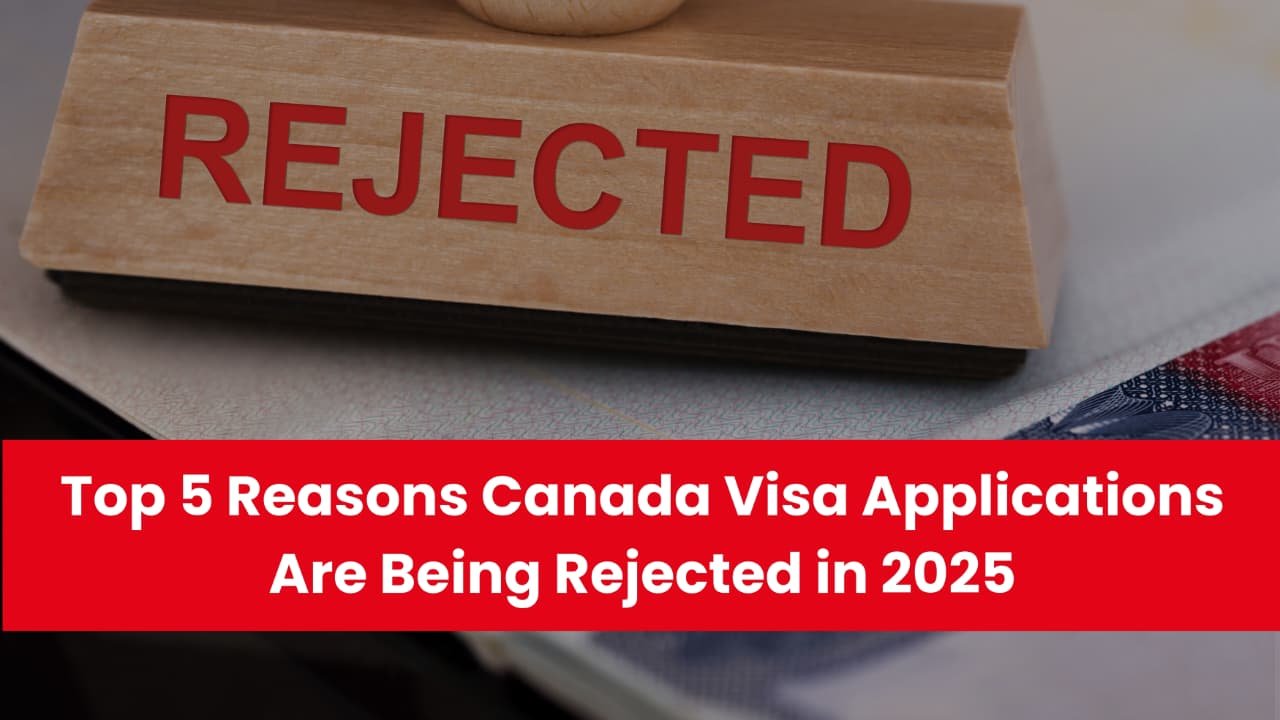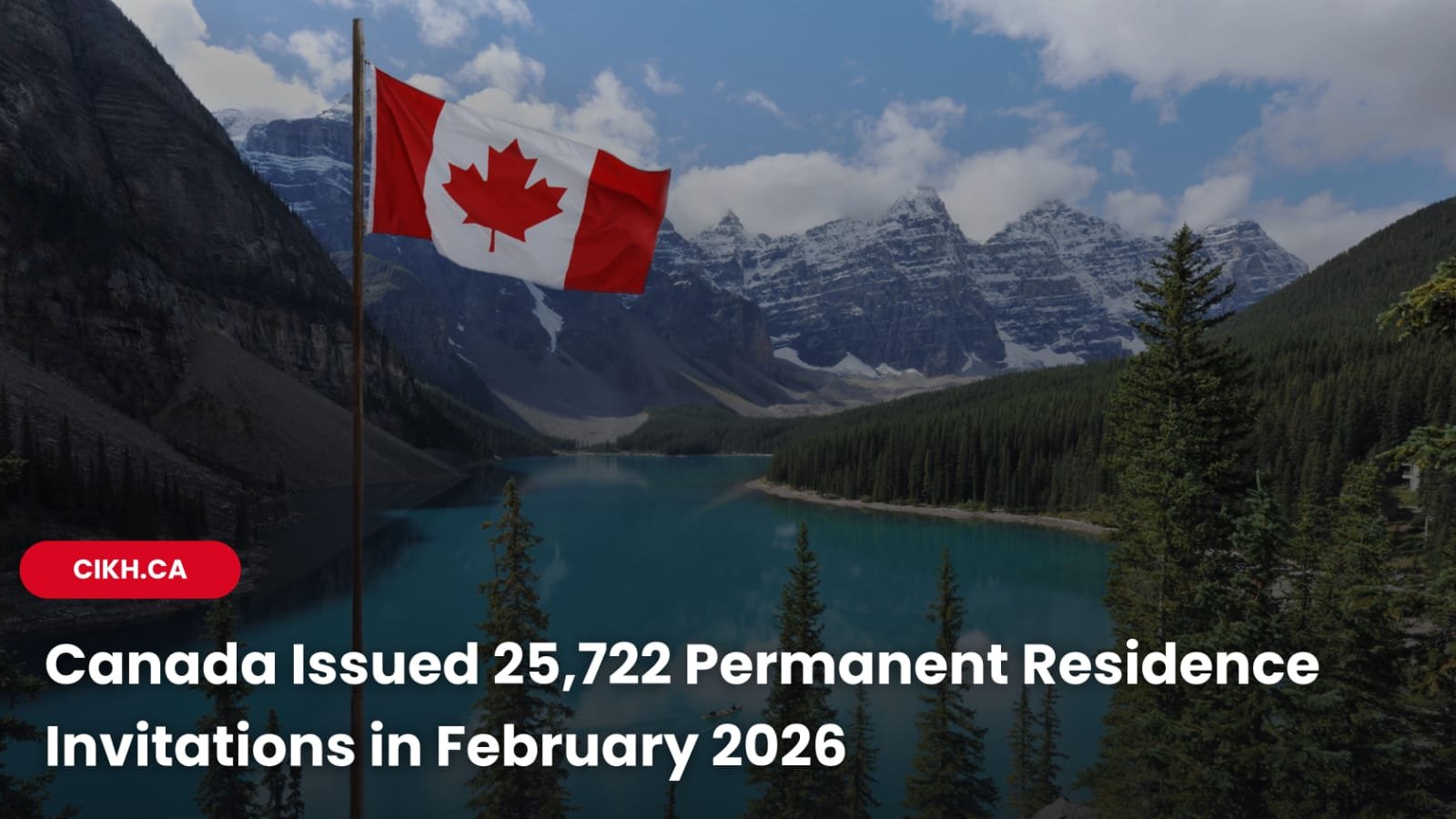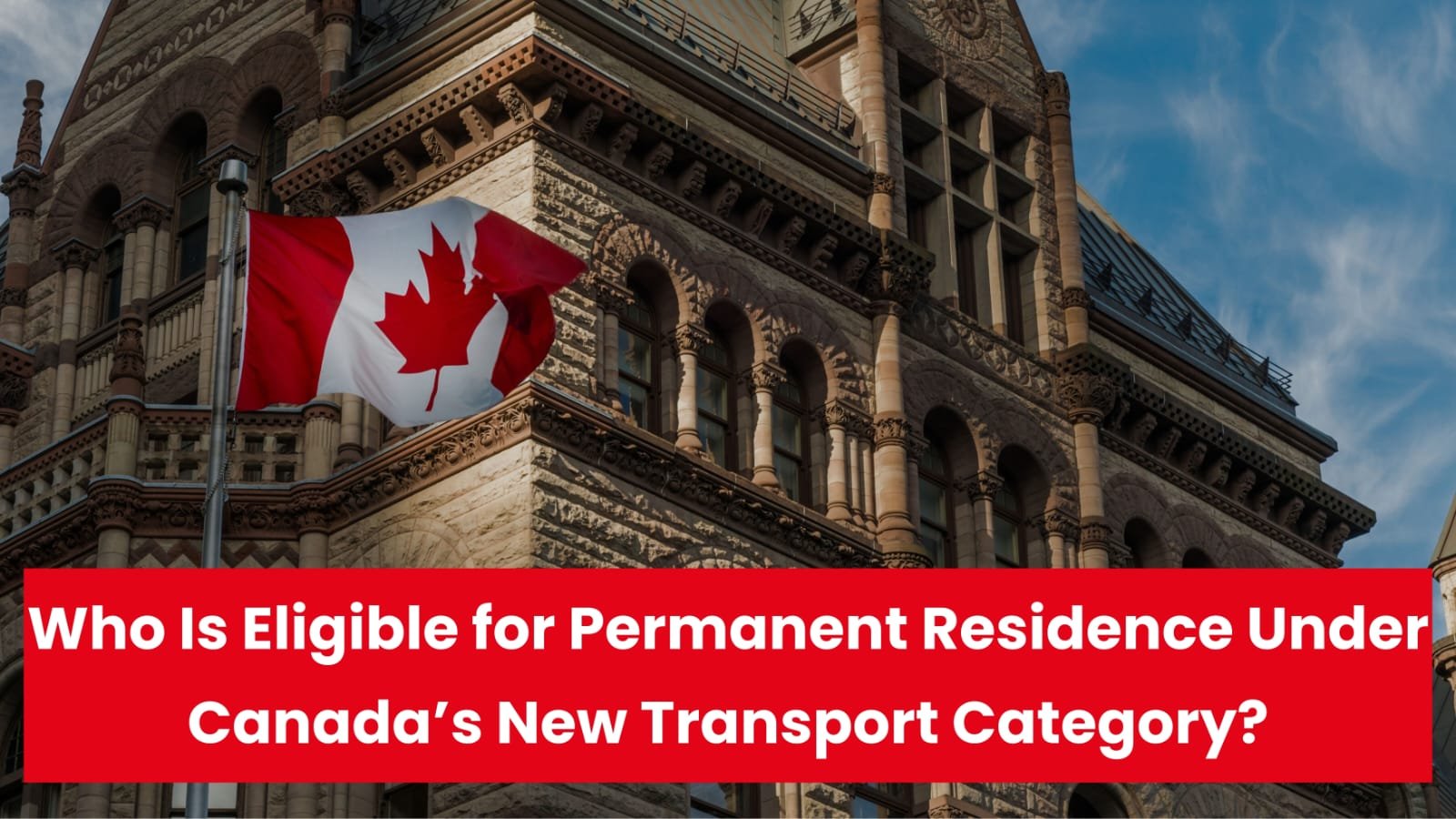Canada remains a highly popular destination for students, workers, and permanent immigrants. However, visa rejection rates continue to be high in 2025, causing frustration and uncertainty for many applicants. According to IRCC data, the global refusal rate for temporary resident visas (TRVs) in 2024 was approximately 35%, with notably higher rates in some African and Asian countries. For student visas, IRCC’s 2023 statistics revealed refusal rates exceeding 60% for applicants from Nigeria and Pakistan, while countries like France and South Korea experienced rates below 20%. These patterns persist into 2025 as Canada applies stricter scrutiny to visa applications. Below are the top five reasons why Canadian visa applications are being denied in 2025, along with real-life examples and advice on how to avoid these common mistakes.
Book Your Consultation for Canadian Immigration
1. Lack of Sufficient Financial Proof
A frequent cause for application denial is failing to demonstrate adequate funds to support yourself and any dependents during your stay.
For study permits, IRCC revised its financial requirements in January 2024: students must now provide proof of CAD $20,635 for living expenses (outside Quebec), in addition to tuition and travel costs—more than twice the previous amount. Many applicants in 2025 are unaware of this update and face refusals.
For instance, a student from India applying for a master’s program with only CAD $15,000 available was rejected in March 2025 because the funds did not meet the new living expense minimum.
TIP: Always refer to the latest IRCC proof of funds guidelines and ensure your bank statements are between 4 to 6 months old to verify genuine access to the funds.
2. Limited or Inconsistent Travel History
Canadian visa officers carefully review your travel history to assess your adherence to visa regulations. Applicants who have never traveled internationally or who have previously overstayed in other countries often face visa denials.
In 2024, IRCC noted that more than 25% of visitor visa refusals were due to “insufficient travel history or doubts about leaving Canada after the visit.”
For example, a Nigerian business visitor with no travel experience outside Africa was denied a Temporary Resident Visa (TRV) in February 2025 because the officer was unconvinced about their connections to their home country.
Advice: If you lack international travel experience, bolster your application by demonstrating strong ties to your home country, such as employment contracts, property ownership, or family relationships.
3. Insufficient Strong Connections to Home Country
According to section 179(b) of the Immigration and Refugee Protection Regulations,applicants must convince the officer that they intend to leave Canada once their authorized stay ends. Weak connections—such as being unemployed, having few family obligations, or not owning property—may lead to visa refusal.
A 2023 Federal Court decision (Singh v. Canada) confirmed that officers can deny visas if applicants do not provide convincing reasons to return to their home country. This rule remains in effect in 2025.
Example: In April 2025, a 27-year-old visitor visa applicant from Pakistan, who planned to attend a cousin’s wedding in Toronto, was denied because they were unemployed and had no family dependents back home.
Advice: Demonstrate strong social, economic, and family ties, such as employment letters, property ownership, or dependents.
4. Identified Gaps or Challenges in Study/Work Plans
A common cause for the denial of study permit applications is the submission of an ambiguous or illogical study plan. Immigration officers require a clearly articulated career trajectory that is coherent within the context of the applicant’s home country.
In 2024, the Immigration, Refugees and Citizenship Canada (IRCC) rejected over 40% of study permit applications from South Asian applicants on the grounds that the chosen program of study was deemed unreasonable given the applicant’s background.
For instance, in May 2025, a 35-year-old applicant with ten years of experience in information technology was refused a study permit for a diploma program in Hotel Management in Canada, as the program was inconsistent with the applicant’s prior education and professional experience.
Recommendation: It is essential to ensure that the selected program of study aligns with your long-term career objectives. Furthermore, your Statement of Purpose (SOP) should explicitly articulate why pursuing education in Canada offers distinct advantages compared to opportunities available in your home country.
5. Incomplete or Misleading Documentation
Immigration, Refugees and Citizenship Canada (IRCC) officers frequently reject applications that contain missing documents, inadequate translations, or materials suspected of being fraudulent. The implementation of advanced AI-based fraud detection technologies in 2025 has enhanced the ability of officers to identify counterfeit documents such as bank statements, employment verification letters, and admission offers.
In 2025, the Canada Border Services Agency (CBSA) reported a 20% increase in student visa scams compared to 2023, resulting in more rigorous application assessments.
For instance, in January 2025, multiple applicants from Kenya were denied study permits after officers identified discrepancies between their reported income and corresponding bank statements.
Recommendation: It is imperative to meticulously verify the accuracy of all submitted documents, engage certified translators when necessary, and avoid reliance on unverified agents who claim to offer “guaranteed visas.”
Conclusion
While Canada continues to welcome immigrants, students, and workers, visa approval
is not assured. The refusal rates observed in 2025 underscore the critical importance of demonstrating financial stability, clear intentions, strong connections to one’s home country, coherent study or work plans, and comprehensive documentation. By proactively addressing these five primary causes of visa refusal, applicants can substantially enhance their likelihood of obtaining a Canadian visa.
Sources
Immigration, Refugees and Citizenship Canada (IRCC) – Visa refusal statistics and program updates, 2023–2025.
- IRCC – Financial requirements for study permits updated January 2024.
- Government of Canada Job Bank – Labour Market and immigration-related refusal insights.
- Federal Court of Canada – Singh v. Canada, 2023 decision on visa refusal and ties to home country.
- Canada Border Services Agency (CBSA) – Report on increase in study permit scams, 2025.
- CIC News, Canadian Press – Coverage of high refusal rates for TRVs and study permits by region, 2023–2025.





